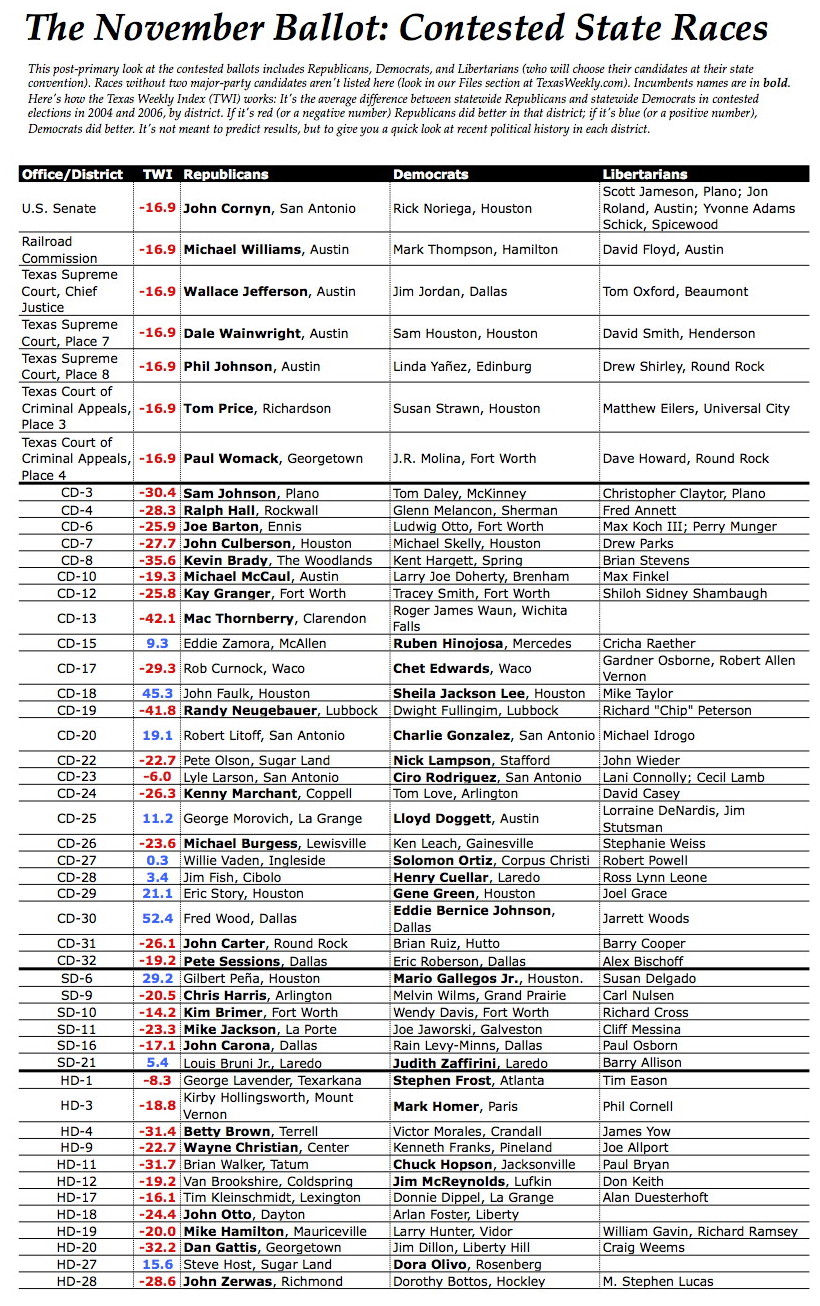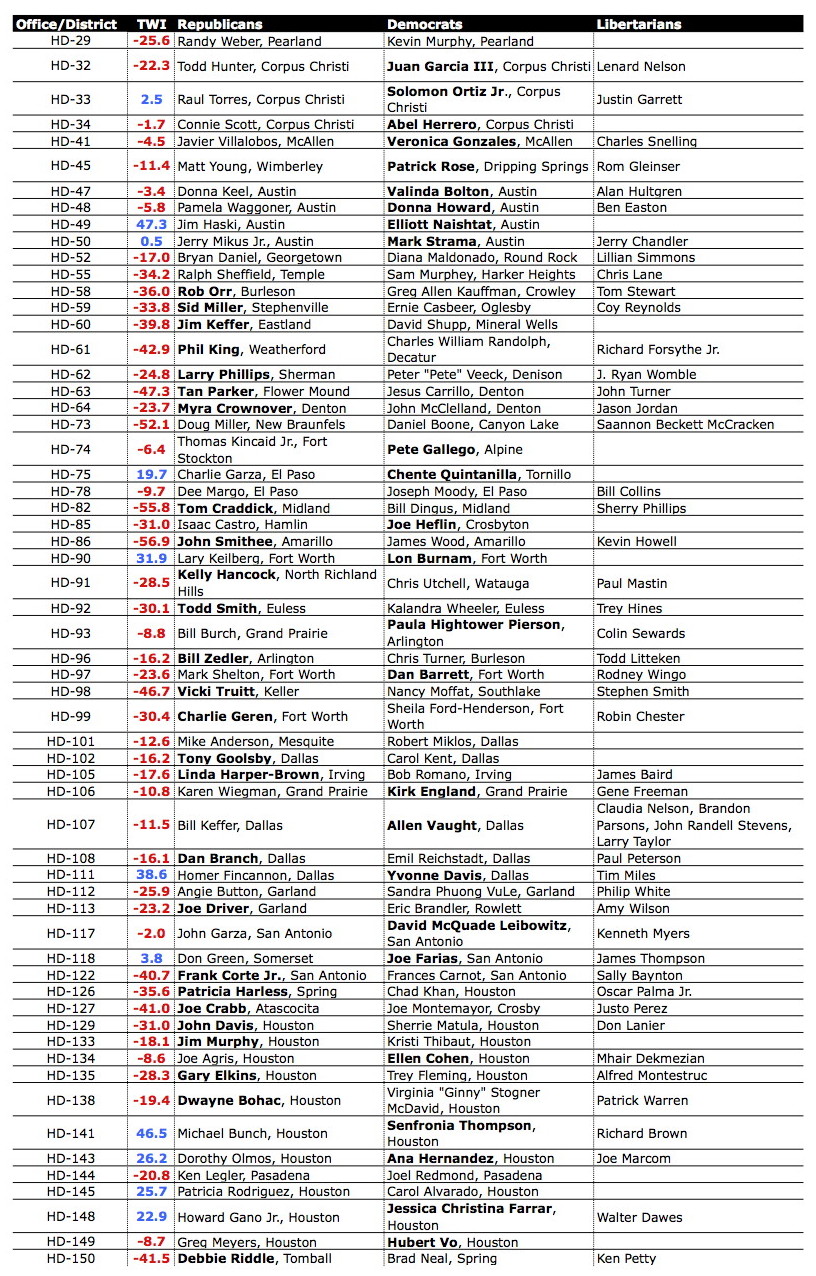It's all but over for major-party candidates who'll face only minor-party opposition in November, a group that includes a statewide judge, seven members of Congress, six state senators, and 46 House members and members-probably-to-be. Broken down by party, this bunch includes 21 Democrats and 36 Republicans.
The Republicans include Texas Court of Criminal Appeals Judge Cathy Cochran, Austin; U.S. Reps. Mike Conaway, Midland; Jeb Hensarling, Dallas; Ron Paul, Lake Jackson; Ted Poe, Humble; and Lamar Smith, San Antonio; state Sens. Robert Duncan, Lubbock; Troy Fraser, Horseshoe Bay; and Kel Seliger, Amarillo; and Reps. Charles "Doc" Anderson, Waco; Jimmie Don Aycock, Killeen; Leo Berman, Tyler; Dennis Bonnen, Angleton; Fred Brown, College Station; Bill Callegari, Katy; Brandon Creighton, Conroe; Drew Darby, San Angelo; Rob Eissler, The Woodlands; Allen Fletcher, Tomball; Dan Flynn, Van; Rick Hardcastle, Vernon; Will Hartnett, Dallas; Harvey Hilderbran, Kerrville; Jim Jackson, Carrollton; Delwin Jones, Lubbock; Susan King, Abilene; Edmund Kuempel, Seguin; Tryon Lewis, Odessa; Jerry Madden, Richardson; Brian McCall, Plano; Tommy Merritt, Longview; Diane Patrick, Arlington; Ken Paxton, McKinney; Jim Pitts, Waxahachie; Burt Solomons, Carrollton; Joe Straus, San Antonio; David Swinford, Dumas; Larry Taylor, Galveston; and Beverly Woolley, Houston.
The Democrats: U.S. Reps. Al Green, Houston; and Silvestre Reyes, El Paso; state Sens. Juan "Chuy" Hinojosa, McAllen; Leticia Van de Putte, San Antonio; and Royce West, Dallas; and Reps. Rafael Anchia, Dallas; Garnet Coleman, Houston; Joe Deshotel, Beaumont; Dawnna Dukes, Austin; Jim Dunnam, Waco; Craig Eiland, Galveston; David Farabee, Wichita Falls; Trey Martinez Fischer, San Antonio; Helen Giddings, Dallas; Scott Hochberg, Houston; Terri Hodge, Dallas; Marisa Marquez, El Paso; Richard Raymond, Laredo; Eddie Rodriguez, Austin; Marc Veasey, Fort Worth; and Tara Rios Ybarra, South Padre Island.



